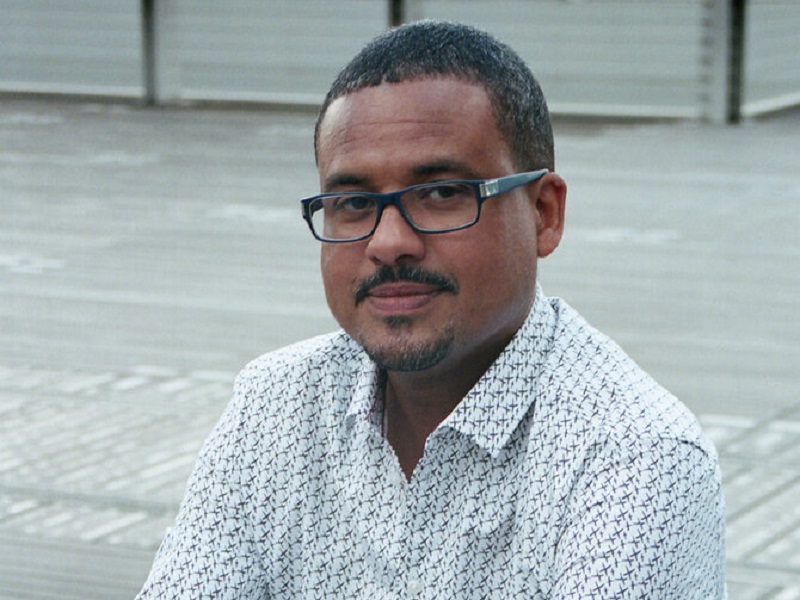
The death of a comrade sends a soldier unhinged in Diop's harrowing novel (All photos: Pushkin Press)
Told in the first person by Alfa Ndyaye — a 20-year-old from a rural, innocent village background in Senegal who is persuaded to join his friend and become a low-ranking tirailleur, or rifleman, in the French army — David Diop’s At Night All Blood is Black, is not for the faint-hearted. Dedicated to the harsh reality of life, death and everything in between, the short novella-style book — thank goodness for it too — details the protagonist’s unrelenting descent into complete madness as he is simply unable to heal from his more-than-brother, Mademba’s death, and the war that continues to ravage his spirit.
The book begins with Mademba dying, his innards spilling out of his body as he begs Alfa to end his life. Alfa refuses, and is filled with both self-revulsion and remorse at the realisation that the humanity that prevented him from putting an end to the misery was the same humanity that should have allowed him to do it. He never recovers from watching his friend die and that colours his experience of the war permanently, a journey detailed in the book that in its original language is called Frère d’âme. Loosely translated, the title means “soul brother” which seems more apt, as their relationship is pivotal to Alfa’s state of mind.
david_diop.jpg

Diop takes us on a remorseless journey of unravelling, where the horrors of war induce a man’s madness. Alfa tells of a life in the trenches, where men compete with one another in recklessness and tribal rivalry, goaded by their captain, where life is cheap and death more valuable than living. “The captain told them that the enemy was afraid of savage Negroes, cannibals, Zulus, and they laughed …The captain has told them they are great warriors, so they love to get themselves killed while singing, so their madness becomes a competition … Temporary madness in war is bravery’s sister.”
In this painfully unnecessary war — during which the Senegalese were forced to fight in a battle that had nothing to do with them — Alfa’s actions become more irrational, and he begins to believe that his deliberate killing, mutilating and trophy-bearing of the enemy — he brings back the enemy’s rifles, and the severed hands that fired them — as an act of revenge for Mademba’s death. The vicious escalation of Alfa’s deeds finally results in his removal from the front-line and he is sent for medical treatment. This part of the book reduces one to tears because it unveils the purity of Alfa’s existence before the madness of the war took over — a life full of love, friendship, hope and honour as a young man.
This book was defined as “a mix between the classical traditions of French and the rhythm of the orality of African languages” by fellow writer and member of the Royal Spanish Academy, Antonio Muñoz Molina. Indeed, although written in French, the rhythm of the words comes from Alfa’s natural language of Wolof. Not only does At Night All Blood is Black provide insight into the cadence of this Senegalese language, it is also a terrifying, maddening and hugely distressing look at what war can do to man, how the softest of humans become hardened and maimed beyond recognition.
The book is worth a reread just to absorb the delicate nuances of Anna Moschovakis’ translation that could easily be missed the first time, as you get carried away by the storyline — but you had better have the stomach for it first.
Purchase a copy of David Diop's 'At Night All Blood is Black' at Kinokuniya for RM93.99 here.
This article first appeared on June 13, 2022 in The Edge Malaysia.


